Fritextsökning
Artiklar per år
Innehållstyper
-

ALS – When the body has given up, but the brain persists
The nerve disease ALS gradually deprives the patient of control over the muscles and, eventually, also of speech. The eyes continue to function, though, and with the help of, among other things, a Swedish-developed invention, communication with the outside world can continue. “It’s their window to the world,” says ALS researcher Caroline Ingre.
-
Xspray får särläkemedelsstatus för behandling av lymfatisk leukemi
Xspray Pharmas läkemedelskandidat XS004 (dasatinib) har beviljats status som särläkemedel i USA för behandling av akut lymfatisk leukemi, ALL.
-

The stomach medication that became the biggest blockbuster of the 1990s
The omeprazole molecule was synthesised as early as 1979, but it took many years before the then Astra had an approved pharmaceutical. Once this happened, a tablet was available that was soon to help millions of people worldwide and break all sales records.
-

Neanderthal genes and Nobel Prize in a popular lecture at Bioscience
An inherited gene variant from our ”evolutionary cousins” – the extinct Neanderthals – may affect how our bodies break down certain drugs. “It’s only a matter of time before we actively start screening for it,” said KI researcher Hugo Zeberg when describing the study at Bioscience 2022.
-
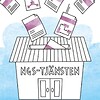
Utbyte av viktig patientinformation ska underlättas
Sveriges första nationella gemensamma e-hälsospecifikation, NGS, har nu sett dagens ljus, meddelar E-hälsomyndigheten.
-
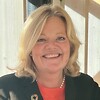
“We need to keep investing in research and innovation”
Jenni Nordborg has worked for just over four years to highlight life science in Sweden. Her mandate as national coordinator ends in December 2022. ““Life sciences has been a long-term priority of governments since many years and I have no doubt that the ambitions will be strong going forward”, says Jenni Nordborg.
-

Promising Alzheimer’s study data sends Bioarctic stock soaring
The drug candidate lecanemab from Swedish company Bioarctic significantly slowed down the deterioration in patients with early on-set Alzheimer’s, according to preliminary results from a phase III study.
-

Biosimilars bring price pressure, but are they sufficiently used?
When biosimilars were introduced just over 16 years ago, hopes were raised that they would give many more patients access to effective but otherwise extremely expensive treatments with biological drugs. So, how well has Swedish healthcare used biosimilars? The answer partly depends on whom you ask.
-
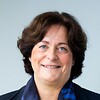
Bromsade tidig Alzheimers i studie – Bioarctics aktie rusar
Läkemedelskandidaten lecanemab från svenska Bioarctic bromsade signifikant försämringen hos patienter med tidig Alzheimers sjukdom, enligt preliminära resultat från en fas III-studie. Beskedet fick aktien att rusa på onsdagsförmiddagen.
-

FOKUS Patient turns international
FOKUS Patient is arranging conferences over 3 days in October, and this year, the focus will be on international collaborations.
-

Bought a tablet factory – and built his own empire
In 1995, Thomas Eldered was CEO of one of Pharmacia’s factories in the Stockholm area when the Swedish pharmaceutical giant, after a takeover, decided to move its production abroad. 34-year-old Thomas was facing an imminent risk of losing his job. However, instead, it actually turned out to be the starting point for one of the biggest success stories in Swedish life science.
-

På söndag är det val – här är partiernas viktigaste frågor för svensk life science
Life Science Sweden har intervjuat riksdagspolitiker från de olika partierna. Här läser du samtliga intervjuer.
-

Anders Blanck about his 17 years at Lif: “The industry is enjoying greater public trust now"
The announcement came as a surprise to those around him, but according to the protagonist himself, the timing was excellent. Anders Blanck is now leaving Lif – a decision that has been growing for some time. “I have been pretty much married to my mission
-
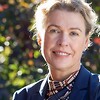
Anna Törner: Kalashnikovs in a new guise
Thanks to resisting European regulatory authorities, Europe has been spared the opioid epidemic. In the 1960s, the situation was the opposite as the American pharmaceutical authority, the Food and Drug Administration (FDA), refused to approve thalidomide (Neurosedyn), writes Anna Törner in a column.
-

Lucy Robertshaw: Did you know Stockholm wants to be in top 5 in the world for Life Sciences?
Karolinska Institutet Solna Campus has certainly become the next “Kendall Square”, writes Lucy Robertshaw in a column.
-
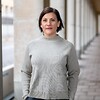
Sofia Nilsson (C): ”Life science-strategin behöver tydligare prioriteringar”
Centerpartiet vill inrätta ett tioårigt forskningsprogram om sjukdomar som drabbar kvinnor. Det berättar Sofia Nilsson (C), i Life Science Swedens intervjuserie med riksdagspolitiker från de olika partierna inför valet.
-

Study: Our behaviour may have been guided by wishful thinking during the pandemic
A new study suggests that we systematically underestimate health risks if and when it suits us. This was especially true during the pandemic, as our risk assessments may have been guided by wishful thinking rather than a rational perception of the risks.
-
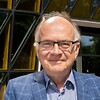
Göran Stiernstedt: “We are the world’s worst at continuity”
Failed investments in primary care, an unreasonable system with online doctors and a public failure at coordinating the healthcare IT system. Göran Stiernstedt does not mind his language when describing the shortcomings of today’s healthcare system. “It makes me extremely frustrated,” he says.
-
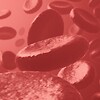
Sobi och Sanofi får genombrottsstatus för behandling mot blödarsjuka
En behandling mot hemofili A, utvecklad av svenska Sobi tillsammans med Sanofi, har tilldelats genombrottsstatus i USA. Det är den första faktor VIII-behandling som ges sådan status.
-

Anna Törner: To kill your darlings
Hopes were high when Anna Törner and her colleague started a study on a dietary supplement that seemed unbelievably good. “Enthusiastically, we dreamed of exciting results and perhaps a publication in a high-impact journal,” she writes in a column.
-

Hello Angelica Loskog!
Life Science Sweden would like to know more about Angelica Loskog and interviews her about her life as a researcher.
-
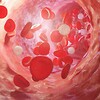
Gesyntas behandling mot systemisk skleros får status som särläkemedel
Gesynta Pharma har beviljats särläkemedelstatus av den amerikanska läkemedelsmyndigheten FDA för sin läkemedelskandidat för behandling av den ovanliga autoimmuna sjukdomen systemisk skleros.
-
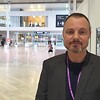
Det här vet vi om den nya coronavarianten omikron XE
En ny rekombinant variant av coronaviruset med namnet omikron XE har väckt uppmärksamhet. Life Science Sweden frågade Niklas Arnberg, professor i virologi vid Umeå universitet, vad vi vet om den nya varianten.
-

WHO: Nya omikronvarianten XE kan vara mer smittsam
Den nya varianten omikron XE kan vara tio procent mer smittsam än de tidigare omikronvarianterna, rapporterar WHO och uppmanar länder att återuppta sekvensering för att kunna upptäcka nya varianter.